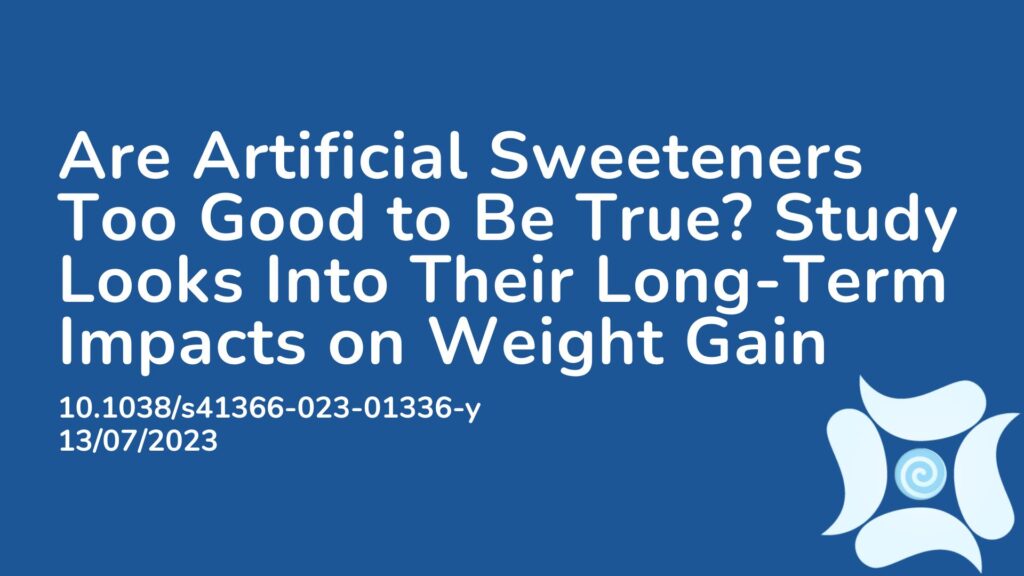Summary:
Literature has shown that intakes of artificial sweeteners has been associated with weight gain. This study looked closely at the habits associated with artificial sweeteners such as long-term use to see if the frequency or way in which they are consumed changes the association with an increased body mass index. The researchers looked at multiple artificial sweeteners including saccharin, aspartame and other sweeteners commonly found in diet sodas. The results showed that when consumed consistently and long-term, their intakes were associated with a higher body weight and waist circumference, regardless of other dietary habits and calorie intake. Saccharin was also associated with an increased risk of obesity over an average of 17.5 years when used long-term. These results indicate that artificial sweeteners may not be a suitable replacement for sugar and that long-term intakes of aspartame, saccharin and other sweeteners used in diet sodas may increase risk of weight gain and obesity independent of other dietary factors.
Abstract:
Literature has shown that intakes of artificial sweeteners has been associated with weight gain. This study looked closely at the habits associated with artificial sweeteners such as long-term use to see if the frequency or way in which they are consumed changes the association with an increased body mass index. The researchers looked at multiple artificial sweeteners including saccharin, aspartame and other sweeteners commonly found in diet sodas. The results showed that when consumed consistently and long-term, their intakes were associated with a higher body weight and waist circumference, regardless of other dietary habits and calorie intake. Saccharin was also associated with an increased risk of obesity over an average of 17.5 years when used long-term. These results indicate that artificial sweeteners may not be a suitable replacement for sugar and that long-term intakes of aspartame, saccharin and other sweeteners used in diet sodas may increase risk of weight gain and obesity independent of other dietary factors.
Article Publication Date: 13/07/2023
DOI: 10.1038/s41366-023-01336-y



